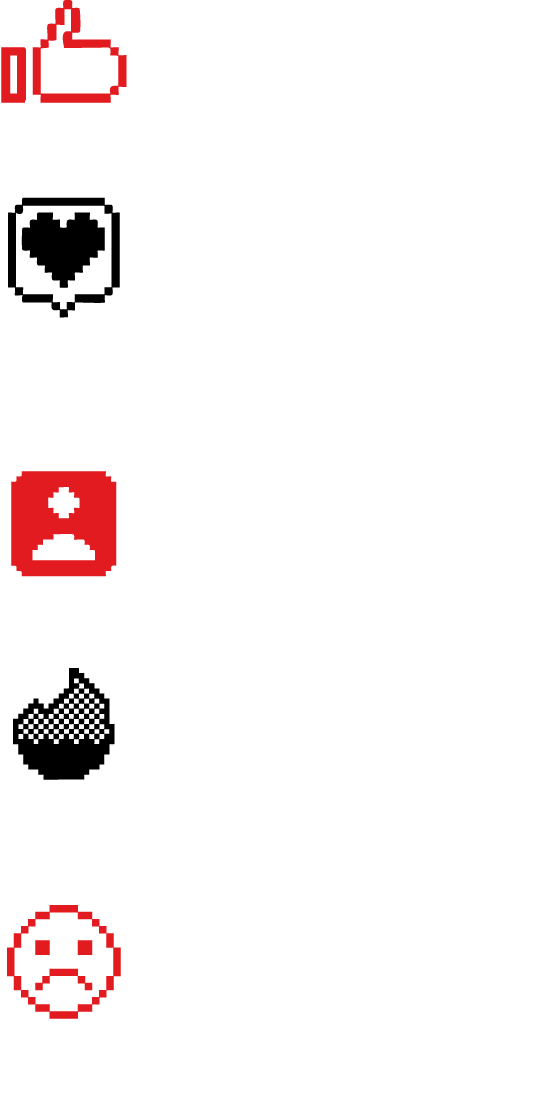Goodbye Tinder? Finding love away from the screen is back.
Dating apps are losing users, and initiatives that make it easier to find a partner face-to-face are multiplying.

BarcelonaAn infinite catalogue of faces, bodies and data in which it is difficult to discern what is real from what is not, banal chats, a list of matchHE unanswered, dates based on false expectations and frustration. This is the feeling that most dating app users end up experiencing.
And it seems that the golden age of these apps has come to an end. An option that is presented as an easy and fast way to meet lots of people, have dates and even find love, but that in few cases leads to success. The data speaks for itself and the actions of Match.com, which brings together apps like Tinder and Hinge, among others, has lost almost 80% of its value since the pandemic. In this direction, according to The Economist, Apps like Bumble and Tinder lost 17 million subscribers during the second half of last year.
While the causes of the progressive decline of dating apps are multiple, digital fatigue is one of the key factors explaining why fewer and fewer people are using them. In fact, a 2022 survey of 500 people between the ages of 18 and 54 by the data analytics company Singles Reports found that nearly 80% of respondents experienced burnout with online dating, according to the New York Times.
Francisco Rivera, a general health psychologist, explains that this phenomenon is usually treated in consultation. "Constant exposure to an endless stream of profiles leads to a loss of sensitivity, and excess causes paralysis or makes us hypercritical, seeking a perfection that doesn't exist," Rivera explains, adding that "the awareness that there is always an option available makes people focus more on the quantity and possibilities." matchHE than in the quality of the interaction."
Ana de la Torre, 25, explains that she downloaded Tinder in 2022, when she was single. "I wanted to meet someone, without commitment," she admits, adding: "When I went out with my friends I didn't like wasting time talking to a stranger, when."
Although it was through this application that she met her ex-partner, she is currently single and has no interest in being an active user again. "The type of conversation, the pattern that was followed in the first messages... this tired me out and right now I wouldn't repeat that experience," recalls De la Torre.
But all trends come back, and that's what's happening in the dating market. Society has grown tired of superficial connections, of experiencing disappointment when they move from the virtual world to the real one, and consequently, they advocate returning to the roots and meeting people face to face. And it's in this context that an ancient profession is resurfacing: matchmaker.
In this sense, one of the films released in August, Materialists, written and directed by Celine Song, portrays this reality quite well. The film's protagonist, Lucy (played by Dakota Johnson), is a matchmaker A luxury New York boutique dedicated to finding its clients the ideal partner. People with a high socioeconomic status are looking for love, but they're in line with their bank balance and meet certain aesthetic, political, and age criteria.
While the service of matchmaking has a strong presence in the United States, in Spain and in Catalonia it is also beginning to appear with less and less timidity. One of the first agencies headhunting sentimental in Catalonia was Aura Matchmaking, founded in 2018 by Sandra Massana. "Aura was born from seeing firsthand how difficult it is to meet people who might fit in with you and who are compatible," explains Massana, adding that "since then, many have emerged because people realize that social media and apps have many shortcomings, such as the veracity of the information, security, or photographs."
According to Sandra Massana, the agency not only focuses on finding the type of partner the client requests and who responds to a series of previously completed personality tests, but also provides emotional support. "We help the client improve aspects that they themselves don't know they need to improve, from emotional deficiencies to knowing how to empathize or communicate," says Massana.
But what differentiates an agency from matchmaking from a traditional marriage agency? "Our added value is that we do an active search; we do a headhunting business, but applied to the sentimental field," reveals the director. The agency, which already has a staff of 20 people, has different matchmakers Deployed throughout the country, they make contacts and recruit potential candidates, in addition to having digital tools that allow them to carry out marketing campaigns segmented by audience.
Initially, they focused on an audience between 45 and 55 years old, but currently, in addition to seeing an increase in demand, they are also seeing interest from a younger audience. People between 30 and 35 years old are willing to pay an average of 3,000 to 6,000 euros to "have someone who helps them meet people calmly and who takes the stress out of not finding a partner, in addition to having the security that what we tell them is true," explains Massana.
An upward trend
According to psychologist Francisco Rivera, despite the high price of being a client of these agencies, "it is likely that this trend will be growing in Spain, since the high cost is perceived as an investment to avoid the emotional and temporal cost of bad dates; the value offered is efficiency and discretion."
Although not everyone can or wants to access these types of services, what is clear is that the dating app market is saturated, which is why other initiatives that make it easier to find love face to face are multiplying and some are even successful. This is the case of Cites Ràpides, a project that began to take shape in 2023 and that copies the format speed dating from the United States. "We believe in face-to-face communication and that meeting in person is another way of getting to know each other," says Pau Bartolí, co-creator and director of Cites Ràpides.
To take part in one of these meetings, you must pre-register through their website, be accepted by the management, and make a payment of €27.50, which includes the reservation of the space, the organization, and the first drink. Although it is necessary to attach photographs, according to Bartolí "it is simply to verify that the people who register are real," and adds that "the photographs can only be seen after the meeting to mark the matchHE that you've done."
Although many people sign up for Speed Dating with the aim of meeting potential partners, Bartolí explains that "many types of connections are taking place: friendships, couples, groups of friends and even people who are having a hard time and who have a crush after coming. Serra, a participant in an evening organized by Cites Ràpides, is an example of this. In one date we created a group of 10 friends that we hope will last a lifetime," says Serra.



